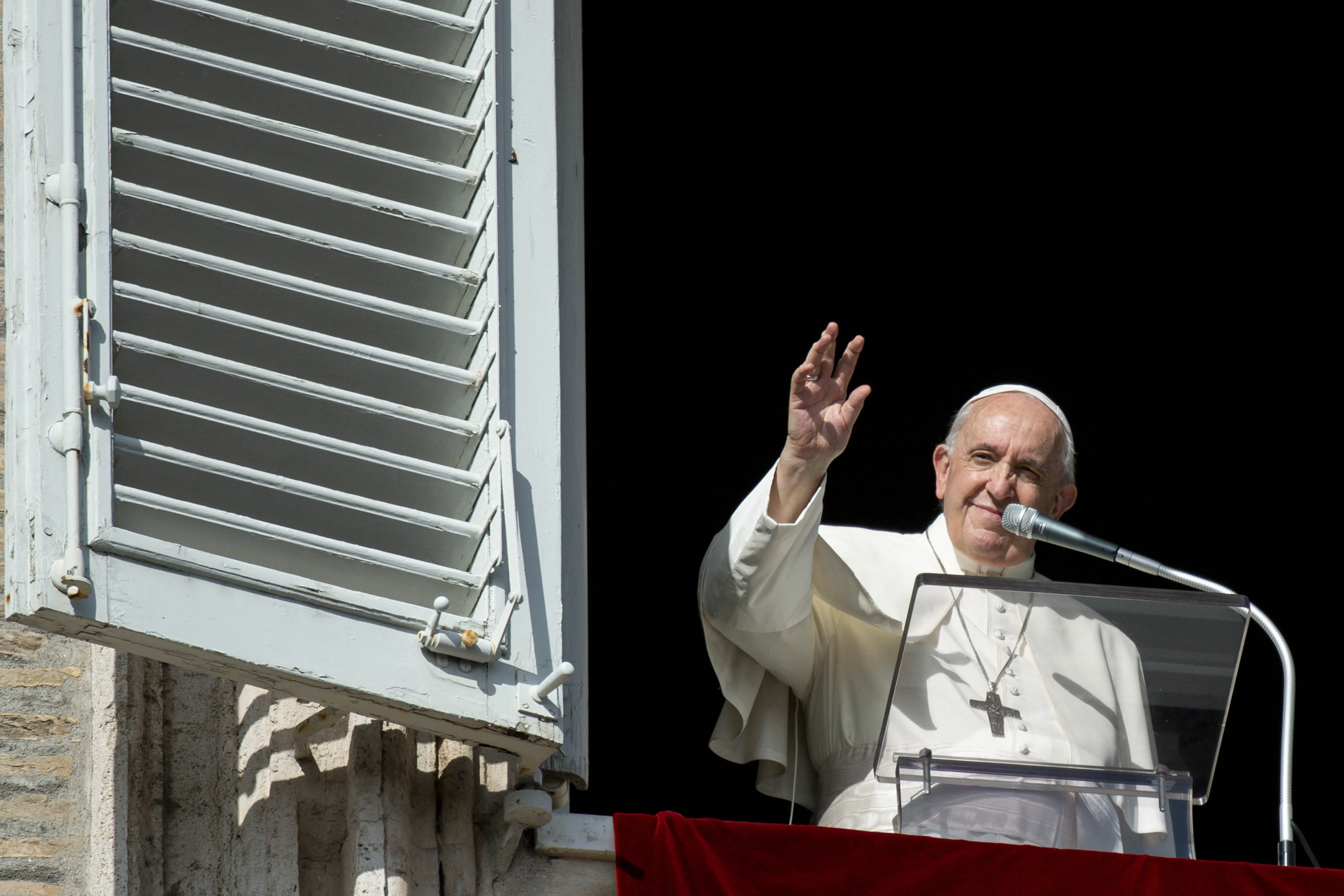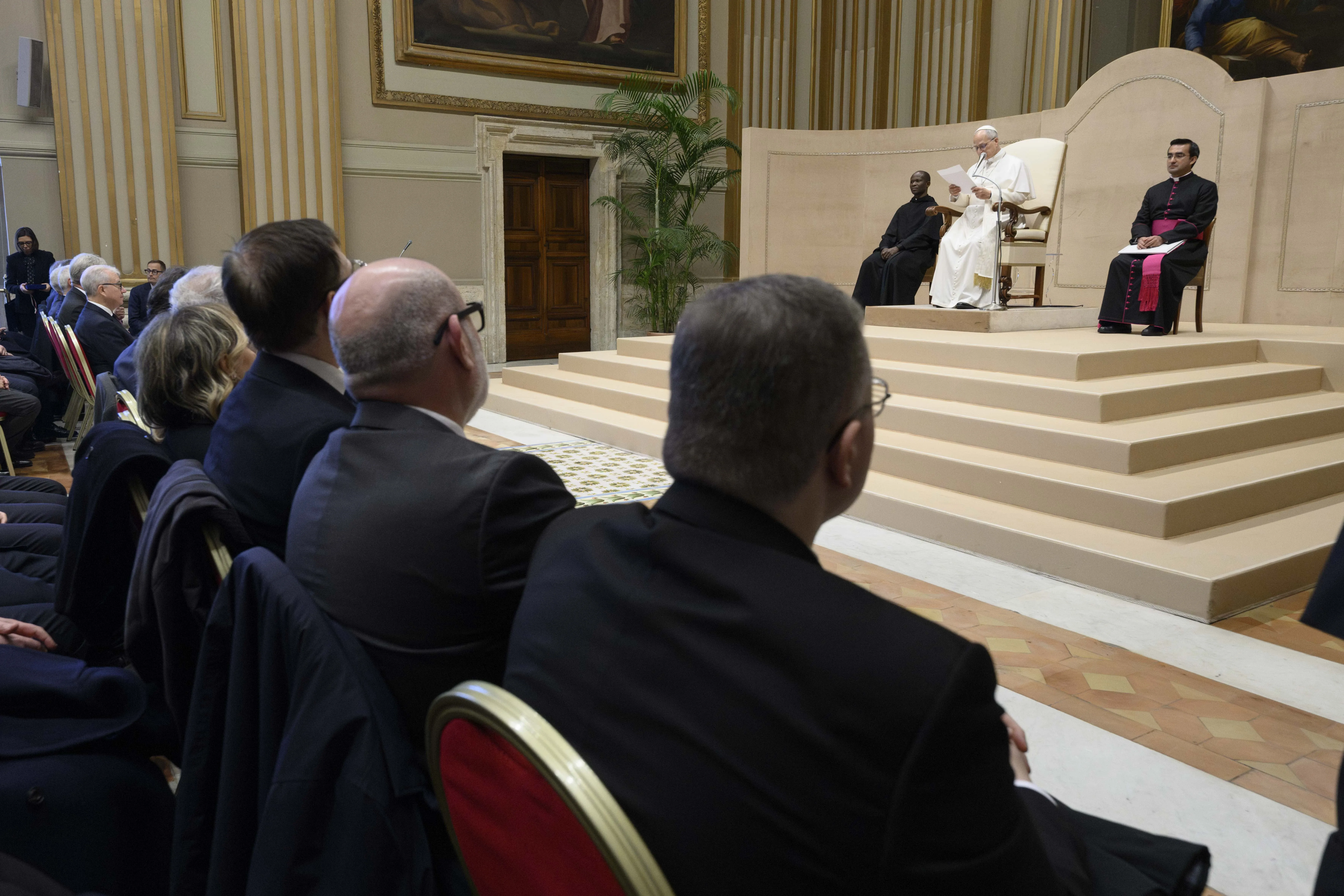In the message, he said Jesus praises the widow’s tithe to the treasury of the temple, because “she has nothing left, but finds her everything in God.”
“She is not afraid of losing the little she has because she trusts in God’s abundance, who multiplies the joy of those who give,” Francis added.
Jesus proposes this woman as a teacher of the faith, instead of the scribes, because “she does not go to the Temple to clear her conscience, she does not pray to make herself seen, she does not show off her faith, but she gives from her heart generously and freely.”
The pope urged people to not be hypocrites like the scribes, who “covered their vainglory with the name of God and, worse still, used religion to run their business, abusing their authority and exploiting the poor.”
Do not base your life on “the cult of appearances, externals, and the exaggerated care of one’s own image,” he advised. “In what we say and do, do we want to be appreciated and gratified or to render a service to God and to our neighbor, especially the weakest?”
“We must watch out for falsehood of the heart, against hypocrisy, which is a dangerous illness of the soul,” he said.
According to Pope Francis, the attitude of the scribes in the Gospel endures today in the form of clericalism, which he described as “being above the poor, exploiting them, ‘beating them,’ feeling perfect.”
“This is the evil of clericalism,” he said. “This is a warning for all time and for everyone, Church and society: never to take advantage of a specific role to crush others, never to make money off the backs of the weakest.”
We have to be vigilant in order to not fall into vanity, fixating on appearances and living superficially, Francis stated.
Jesus, by telling the story of the poor widow, shows us the path to healing from clericalism and hypocrisy, he said.








